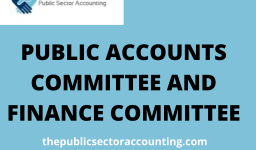Summary of Contents
PROCUREMENT RULES
Dear Learner; you are welcome to Session 4. We hope you are familiar
with the various structures used in the public procurement process of Ghana. In this session, we will be learning about the rules, procedures, standards that must be followed by the public sector when buying goods, works or services.
Objectives
By the end of this session, you should be able to:
a) explain procurement plans and their need.
b) Discuss procedures for tender and administration of tender.
Now read on…
PROCUREMENT PLANS
Procurement entities are mandated to prepare and submit to the entity tender committee at least one month to the end of the year that proceeds the year that the procurement the plan relates and posts the procurement plan at the Authority’s website.
Act 914 also
mandates procurement entities to update procurement plans after budget approval and at quarterly intervals after that. The updated plan should also be posted on the Authority’s website.
A procurement plan is the projected procurement activity for the ensuing period. It is meant to keep procurement activities within budgets, ensure proper control of procurements ensure that programmes are supported by the necessary procurement arrangements.
The procurement plan shall indicate
(a) contract packages, description or lots;
(b) the estimated cost of each package;
(c) the procurement method, approvals
needed and;
(d) processing steps and times
QUALIFICATION OF TENDERERS
A tenderer is an individual or organization who is convinced of his/its qualification and expertise for a contract put in a bid to supply the goods, works and service being procured by a procurement entity.
Section 22 of the procurement Act has rules governing who qualifies to put in a bid for goods, works and/or services being sought by a procurement entity for purchase.
The procurement entity reserves the right to specify the documents (in writing or any form in accordance with Evidence Decree, 1975 (N.R.C.D. 323)) to be submitted by tenderers and disqualify any tenderer who provides false, materially inaccurate or incomplete information at any time that such information comes to the attention of the
entity.
READ ALSO: WHAT IS INSTITUTIONAL FRAMEWORK FOR PUBLIC SECTOR ACCOUNTING
In other words, if the inaccuracy or incompleteness of the information is
immaterial then the tenderers may be called upon to rectify the anomaly but failure to do so on time can lead to disqualification. Also, the procurement entity may require a tenderer to authenticate a foreign document submitted in support of his/her qualification.
In addition, a procurement entity may engage in pre-qualification proceedings to identify tenderers who are qualified prior to the submission of the tenders.
The form of the prequalification proceedings shall be specified by the procurement entity and tenderers have the right to request for information on documents to be submitted at their cost.
Section 23 and 24 give details on the information, procedure and decision of the pre-qualification proceedings.
READ ALSO: WHY IS A REGULATORY FRAMEWORK NECESSARY
Other qualifications of the tenderer are as follows:
22. (1) A tenderer in public procurement shall
(a) possess the necessary.
(i) professional and technical and environmental qualifications;
(ii) financial resources;
(iii) equipment and other physical facilities;
(iv) managerial capability, reliability, experience in the procurement object
and reputation; and
(v) the personnel to perform the procurement contract;
(b) have the legal capacity to enter the contract;
(ba) meet ethical and other standards applicable in this country
(c) be solvent, not be in receivership, bankrupt or in the process of being
wound up, not have its business activities suspended and not be the subject
of legal proceedings that would materially affect its capacity to enter into a
contract;
(d) have fulfilled its obligations to pay taxes and social security contributions
and any paid compensation due for damage caused to property by
pollution;
(e) have directors or officers who have not in any country been
(i) convicted of any criminal offence relating to their professional conduct
or to making false statements or misrepresentations as to their
qualifications to enter into a procurement contract, within a period of
ten years preceding the commencement of the procurement
proceedings; or
(ii) disqualified pursuant to administrative suspension or debarment
proceedings.
(f) meet such other criteria as the procurement entity considers appropriate that
does not discriminate and is objectively justifiable.
Suspension of a Supplier or Consultant
22A. (1) The Board may suspend a supplier or consultant from engaging in any public procurement or disposal process for a period determined by the Board
(a) on the recommendation of a procurement entity or after investigations on its own initiative; and
(b) where it is determined after a special audit or by a court, that a tenderer is engaged in corrupt or fraudulent practices.
(2) The suspension of a supplier or consultant by the Board shall occur where
(a) the supplier or consultant is in contravention of a provision in this Act;
(b) the supplier or consultant has debarred from the procurement processes of an international agency of which the Republic of Ghana is a member;
(c) the supplier or consultant is found to have a record of unsatisfactory performance after investigations by the Auditor-General;
(d) the supplier or consultant fails to substantially perform its obligations under the contract;
(e) the supplier or consultant is suspended by a professional body for professional misconduct;
(f) the supplier or consultant is found to have faulted on its obligations by an Act of Parliament; or
(g) the supplier or consultant has been convicted of corrupt practice or a fraudulent act under this Act.
Form of Communication
- (1) A procurement entity shall, when soliciting the participation of a tenderer in procurement proceedings, specify
(a) the form of the procurement proceedings; and
(b) measures and requirements needed to ensure the protection of classified information involved in the procurement.
(2) A procurement entity shall only use the means of communication commonly used by a tenderer in a specific type of procurement in the procurement process and in any meeting with tenderers shall use means of communication that ensure the full participation of tenderers.
(3) A procurement entity shall put in place measures to secure the authenticity, integrity and confidentiality of the information used in a procurement process.
(4) Communication between procurement entities and tenderers shall be in writing and communication in any other form shall be referred to and confirmed in writing.
Records of Procurement Proceedings
In the interest of providing evidence of having followed due process, promoting fairness and accountability, documenting procedures, and providing evidence to the procurement board, Auditor-General, donors through the Finance Minister or their representative, procurement entities are required to keep records in specified forms on every procurement proceeding.
The specific provisions on which records to keep and how they are maintained are captured in section 28.
(1) A procurement entity shall maintain a record of the procurement proceedings containing the following information
(a) a brief description of the goods, works or services to be procured, or of the procurement need for which the procurement entity invited proposals or offers;
(b) the names and addresses of suppliers or contractors that submitted tenders, proposals, offers or quotations, and the name and address of the supplier or contractor with whom the procurement contract is entered;
(c) information relating to the qualifications, or lack of qualifications of suppliers or contractors that submitted tenders, proposals, offers or quotations;
(d) the price, or the basis for determining the price and a summary of the other principal terms and conditions of each tender, proposal, offer or quotation and of the procurement contract if these are known to the procurement entity;
(e) a summary of the evaluation and comparison of tenders, proposals under section 69, offers or quotations including the application of any margin of preference pursuant to section 60;
(f) if the tenders, proposals, offers or quotations were rejected, a statement to that effect and the grounds for the rejection;
(g) if, in procurement proceedings involving methods of procurement other than tendering, those proceedings did not result in a procurement contract, a statement to that effect and the reasons;
(h) the information required under section 29, if a tender, proposal, offer or quotation was rejected pursuant to that provision;
(i) a statement of the grounds and circumstances on which the procurement entity relied to justify the selection of the method of procurement used;
(j) in the procurement of services by means of Part VI, the statement required under section 71 of the grounds and circumstances on which the procurement entity relied to justify the selection procedure used;
(k) in procurement proceedings involving direct invitation of proposals for services in accordance with section 63(3), a statement of the grounds and circumstances on which the procurement entity relied to justify the direct invitation;
(l) in procurement proceedings in which the procurement entity, in accordance with section 25, limits participation on the basis of nationality, a statement of the grounds and circumstances relied upon by the procurement entity for the limitation
(m) a summary of any requests for clarification of the prequalification or invitation documents, the responses received as well as a summary of any modification of the documents;
(n) a record of any complaints received from suppliers, contractors or consultants and the responses received.
(o) a statement of the reasons and circumstances relied on by the procurement entity when the procurement is cancelled, stating the reasons and circumstances relied on by the procurement entity for its decision to cancel the procurement;
(p) the reasons and circumstances for which a procurement entity rejected a tender or consultancy proposal;
(q) any socio-economic policies considered in the procurement proceedings, details of the policies and the manner in which they were applied;
(r) a copy of the review proceedings where a complaint is submitted to the procurement entity;
(s) where a system other than competitive tendering has been used, the reasons and circumstances the procurement entity considered when selecting the other procurement method;
(t) the reasons and circumstances relied on by a procurement entity when a tenderer is excluded from procurement proceedings;
(u) a statement where the award of a procurement contract is as a result of the failure of the previous tenderer to sign the procurement contract or provide the required security for the performance of the contract;
(v) the reasons and circumstances relied on by a procurement entity where confidentiality in the procurement proceedings is required;
(w) the requirements imposed on tenderers for the protection of classified information in a procurement process;
(x) a statement of the reasons and circumstances used to justify the framework agreement process where applicable; and
(y) any other information required to be included in the record by a procurement entity in furtherance of the procurement process.
Cancellation of Procurement Proceedings
28A. (1) A procurement entity may, for specific and fully justified reasons, cancel procurement proceedings before the expiry of the deadline for the submission of tenders, where
(a) the entity discovers an imperfection in the wording of the request for submission of tenders, which could mislead tenderers;
(b) the procurement entity decides to carry out the work subject of the tender by itself;
(c) there is a cut in the budget intended for performing the contract;
(d) no bid has been submitted;
(e) exceptional circumstances or a force majeure render normal performance of the contract impossible; (f) the economic or technical data of the project has fundamentally changed.
2) The head of a procurement entity may, after the expiry of the deadline for the submission of tenders, cancel a procurement proceeding where
(a) no tender has been submitted within the specified deadline;
(b) the tender procedure has been unsuccessful;
(c) it is established that the tender documents contain terms or technical specifications that cannot be met by any of the tenderers or that these specifications lead exclusively to a specific economic operator;
(d) the prices of the tenders that meet the terms and the technical requirements of the tender documents are unrealistic or appear to be the product of collusion between the tenderers, resulting in the circumvention of healthy competition;
(e) the circumstances under which the procurement procedure was announced have changed to such an extent that the scope of the tender procedure is no longer necessary;
(f) exceptional circumstances or a force majeure render normal performance of the contract impossible; or
(g) any other serious unforeseeable reason, which the procurement entity considers justifiable, applies.
(3) The head of a procurement entity shall, before cancelling a procurement proceeding under subsection (2) have due regard to
(a) the time and resources expended by interested tenderers, particularly in the case of complex contracts with a complicated scope;
(b) the right of an interested party who has or had an interest in being awarded the specific contract, and who has sustained or is likely to sustain a loss as a result of the cancellation, to seek administrative review under this Act or to seek redress in court; and
(c) general principles of good faith and transparency and public policy.
(4) A procurement entity may cancel procurement proceedings after acceptance of a successful tender if the tenderer whose submission has been accepted, fails to sign the applicable contract as required or fails to provide the applicable security required for the performance of the contract.
(5) Subject to subsection (3), where a procurement proceeding is cancelled before the contract is signed, a tenderer or interested party shall not be entitled to claim any compensation from the procurement entity.
(6) For the avoidance of doubt, a procurement entity shall not incur liability for invoking this section and shall in no event be liable for any damages including, damages for loss of profits in any way connected with the cancellation of a tender.
(7) The publication of a tender notice does not commit the procurement entity that published the notice to implement the programme or project announced.
(8) Subject to this section, where a tender proceeding divides tenders into lots, individual lots may be cancelled.
(9) The decision of a procurement entity to cancel the procurement and reasons for that decision shall be included in the record of procurement proceedings and shall be promptly communicated to any tenderer or consultant who presented a tender or proposal.
(10) A cancellation notice shall promptly after the decision to cancel is made, be published on the website of the procurement entity or of the Authority.
(11) After cancelling a procurement proceeding, the procurement entity may
(a) start a new tender proceeding; or
(b) re-start the tender proceeding using the same reference as the original invitation.”
A procurement entity shall publish notice of the procurement awards on the authority’s website. A procurement entity should reject the tender of a supplier, consultant or contractor who attempts to give inducements (of any form) to the entity, its current or previous staff.
Procurement entities shall give a description of the goods, works and services to be tendered by giving an objective technical and quality characteristic about them without using tenderers in any prequalification documents, invitation documents or other documents for the invitation of proposals, offers or quotations.
The procurement entity shall use standardized features, requirements, symbols and terminology relating to the technical, quality and performance characteristics of the goods, works or services to be procured shall be used, where available, to formulate the specifications, plans, drawings and designs to be included in the pre-qualification documents, invitation documents or any other documents for the invitation of proposals, offers quotations
CONCLUSION
In all these, English shall be the language of communication. Also, the procurement entity must main a high level of confidentiality in the entire procurement process.
In this session, we have learnt some of the rules governing public procurement in Ghana. Specifically, we have discussed the meaning of procurement plans and why it is necessary for public sector entities to prepare them; we also looked at the meaning and qualification of a tenderer as well as the records and procedures of administering a tender.





Leave a comment